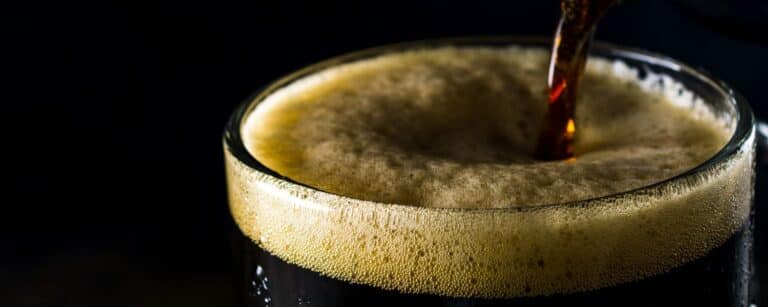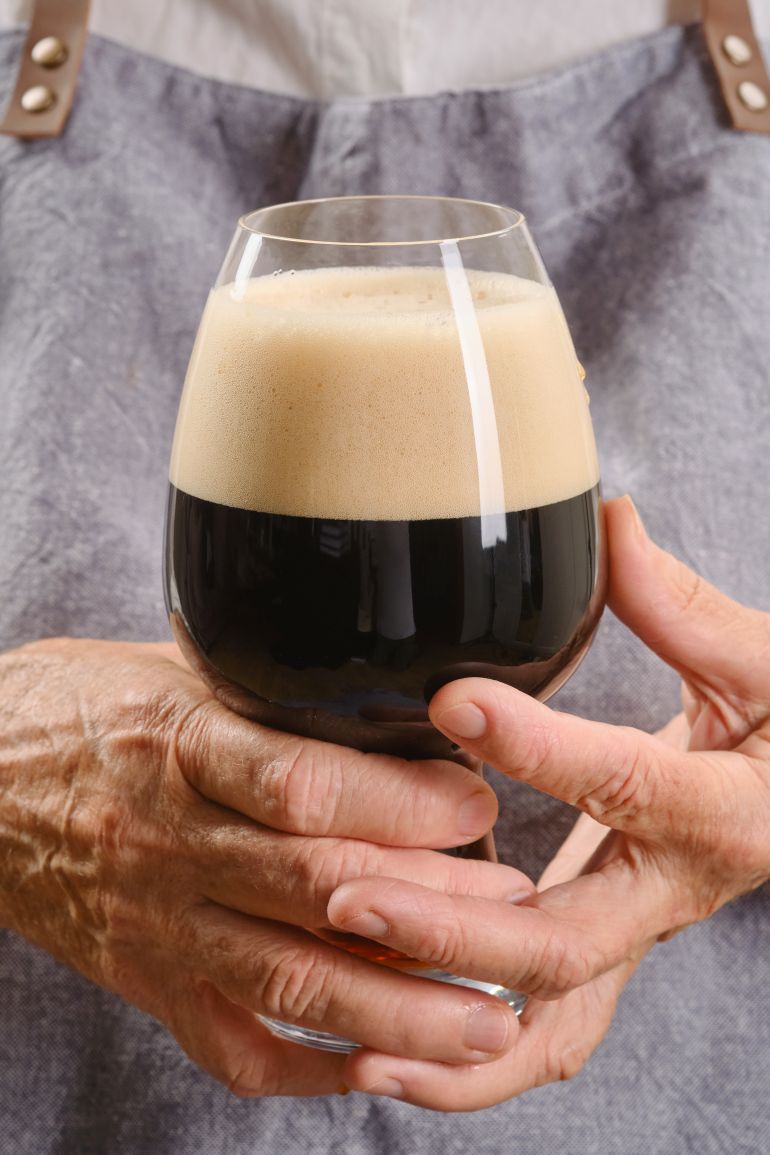
I know British beers pretty well and I have a soft spot for them. I am particularly fond of Scottish ales, finding their rich, malty character irresistible. I love traveling around the UK, meeting brewers in their breweries and beers in the local pubs. It is there that I discover all the beer passion this world entails. But there’s more to British beer than meets the eye, or should I say, palate. The beer facts we’re about to explore aren’t just historical trivia; they reveal how British brewing genius shaped the world of craft beer. In UK there is a lot of development ongoing on beer research and studies. All is really fermenting. Both Universities and private companies are investing in research and development. Let’s dive into some beer facts and discover why British beer deserves a place in every beer lover’s heart!

1. Real Ale: Unearthing Beer Facts - A Scottish Stand Against the Machine
The Real Ale movement, spearheaded in Scotland to preserve the traditional methods of brewing and serving beer, stands as a testament to the passion for authentic flavors. As CAMRA (Campaign for Real Ale) puts it, cask and bottle-conditioned beers are the true embodiment of “real ale.” You can still find real ales in the UK, a refreshing departure from conventional kegs. Real ales are served straight from the cask in local pubs. The yeast, still inside the cask, requires bartenders to act as scientists, carefully controlling hygiene and managing the beer to ensure it’s served at its best. The beer is poured from the cask with a pump system that does not require using extra gas. All beer bubbles are therefore natural, only produced by yeasts.

These beers tend to last up to ca. 5 days, given the presence of viable organism like yeast. What’s more, the Real Ale movement of the ’70s—a quintessentially British phenomenon—may very well have been the inspiration for the American Craft beer revolution a couple of decades later. This is another of the surprising beer facts about the British beer and influence.
The story of IPA (Indian Pale Ale) is a classic tale of British creativity meeting colonial necessity. With India being a British colony, British ships would transport beer across vast oceans. The long and arduous journey from Great Britain to India often caused the beer to spoil due to bacterial infections. To combat this, British brewers devised a clever solution: they increased the alcohol strength and significantly upped the hop levels. Alcohol and hops, especially in high concentration, are potent antibacterial, preserving the beer during the long voyage. This simple solution led to the creation of the iconic IPA beer style. The IPA style has been revived by American brewers and has evolved into a lot of variations as e.g. West Coast IPA, Double IPA, etc. But all these varieties have the IPA British creation as starting point.
Speaking of hops, one of the funnier beer facts is that they’re known for their antibacterial properties. It’s tempting to joke about hops being a natural antibiotic, but remember this: please don’t replace actual antibiotics with IPAs when you’re feeling unwell! While a good IPA might lift your spirits, it won’t cure an infection!
While many associate stout with Ireland and particularly with Guinness, its origins lie in the bustling streets of London. The story says that a black beer (something made with a good portion of roasted malts) with a low level of alcohol was brewed for the porters working heavily transporting goods, or luggage in some accounts. The beer was named Porter. Later, the beer was increased in alcohol strength, becoming the classic stout, and was exported to Ireland.
It was much liked and Ireland became the largest market. Until Mr. Arthur Guinness started to brew it and make it so popular that has become an Irish thing. The origins though are in the UK. Even today, British porters and stouts remain excellent and showcase the creativity of British brewing. This lesser-known origin story is one of the most exciting beer facts worth sharing.

One of the more remarkable beer facts is the historical use of beer as a form of water disinfection. In the Middle Ages, well water was often contaminated with bacteria, leading to widespread dysentery. Cleverly, British brewers used this water to brew beer, boiling it as part of the process. The resulting beer, with an alcohol content of around 1%, was given as a thirst-quencher instead of water, even to children, making it safer to drink than the water itself. You might be wondering why it was safer? Well, the boiling process would kill most of the harmful microbes responsible for causing dysentery, and that little bit of alcohol would act as a preservative, further preventing the growth of bacteria. Moreover, it’s important to remember that in those times, there were no readily available filtering systems or other means to effectively purify water, so this was a truly ingenious solution.
While we do not want to encourage children to drink any sort of alcohol, we appreciate the smart idea of making contaminated water fit for drinking, especially given the limited options available at the time. This is a true example of how brewers found innovative solutions beyond just brewing tasty beers. This fact is one of the most important beer facts for understanding how the history of beer and human health intersect.

One of the more unbelievable beer facts relates to the medical views about beer in the pre- and immediately post-war period. The British understood the health properties of beer so much that medical doctors were prescribing stouts to people who had iron deficiency. It was considered even safe to drink sips of stout during pregnancy. However, it’s important to note that this was more of a widespread belief than a scientifically proven fact. As a friend told me, the relaxing effects of alcohol, or even just the placebo effect, likely played a role in how it was perceived as a health tonic. This belief is one of the beer facts that makes us laugh today.
I couldn’t believe it when I heard that the grandmother of a British friend of mine was actually prescribed a stout by her doctor to cure her anemia, just as I couldn’t believe my eyes when, more reacently, on a pub in Scotland, I saw a pregnant woman sipping a half glass of stout and smiling about it. Such was the common belief and that’s one of the incredible beer facts!
While some might want to revisit that practice now, we absolutely do not want to encourage now consuming alcohol, particularly during pregnancy.
Conclusion: A Toast to British Brewing Heritage
From real ale to IPA and beyond, these beer facts only scratch the surface of Britain’s profound impact on the world of beer. As we’ve seen, the British have given the world countless brewing gifts, from innovative styles to ingenious solutions for preserving beer.
These beer facts have all come together to create the rich, diverse beer culture that we enjoy today. I, for one, am deeply grateful for the knowledge and inspiration I gained while studying the science of brewing in the UK. It is thanks to this incredible land and all its passionate beer makers that all this comes now. Our mission is to give back and share all the knowledge and skills we have acquired with those living in Europe and the rest of the world. So, Cheers to the UK and thank you for all.